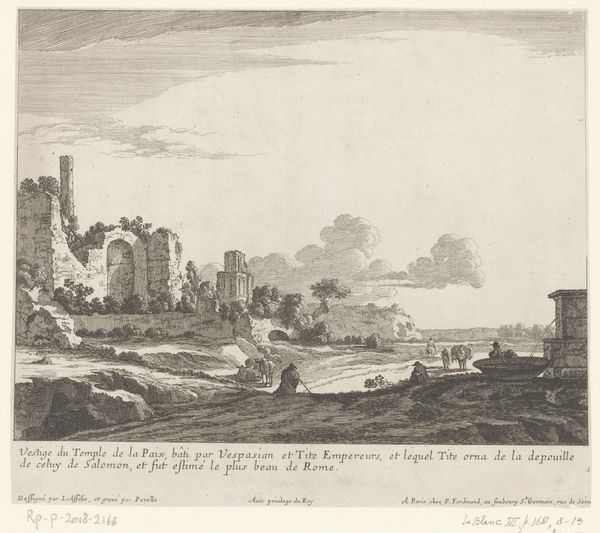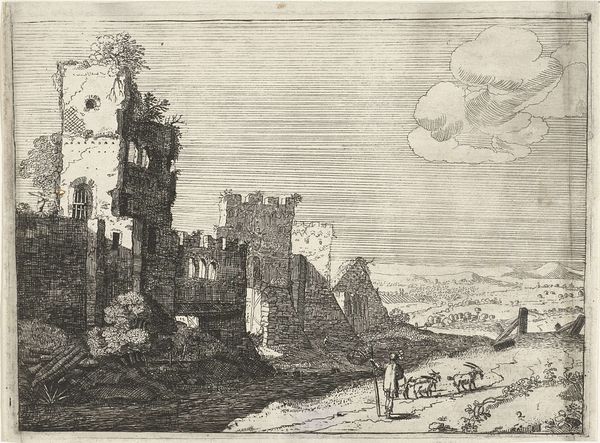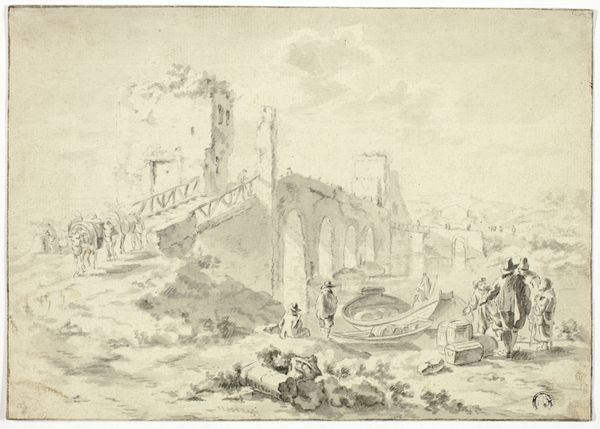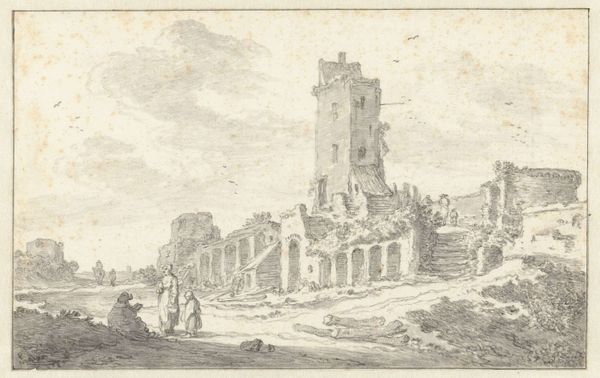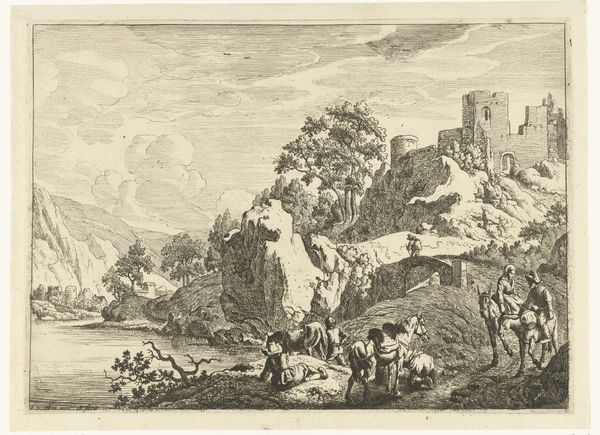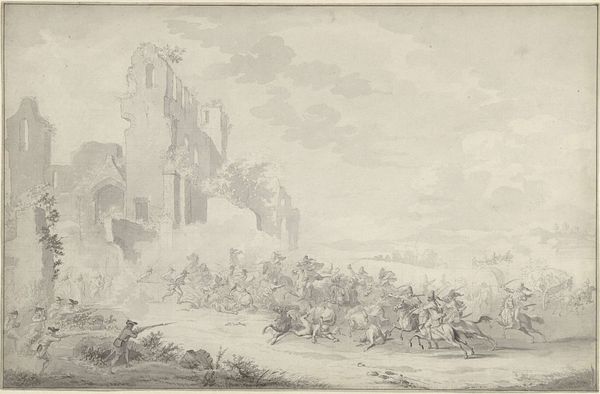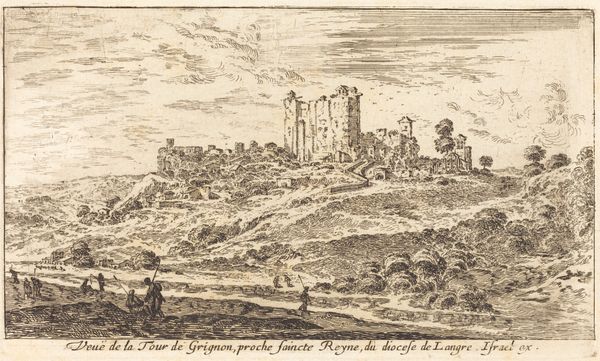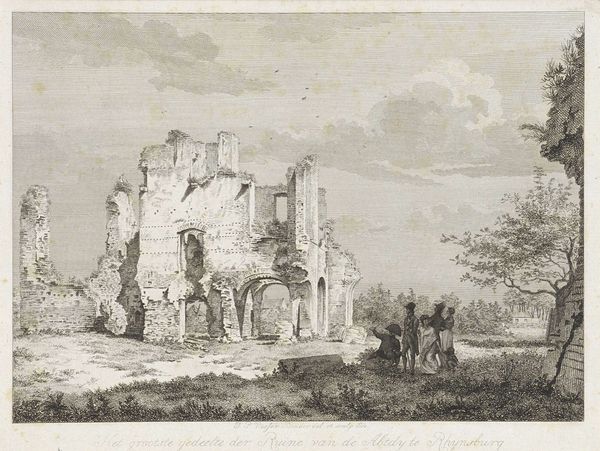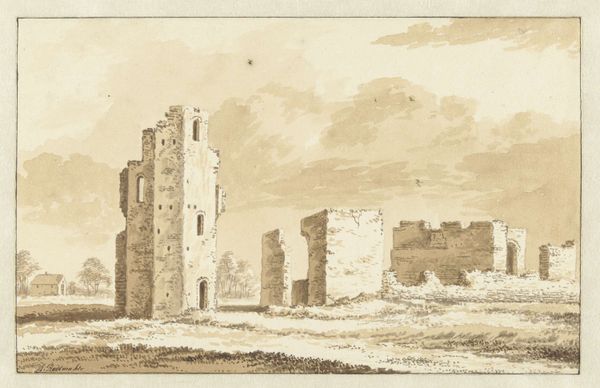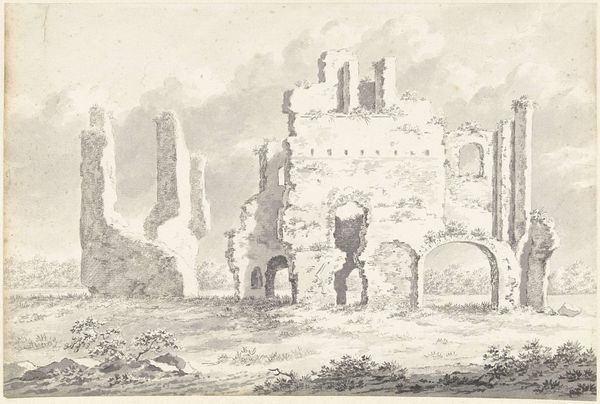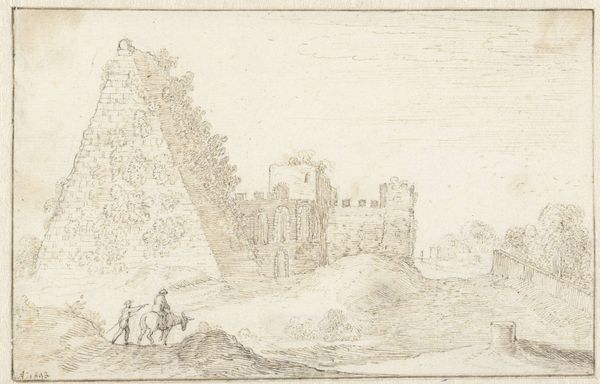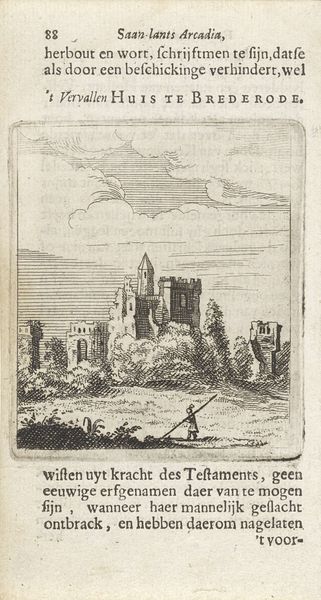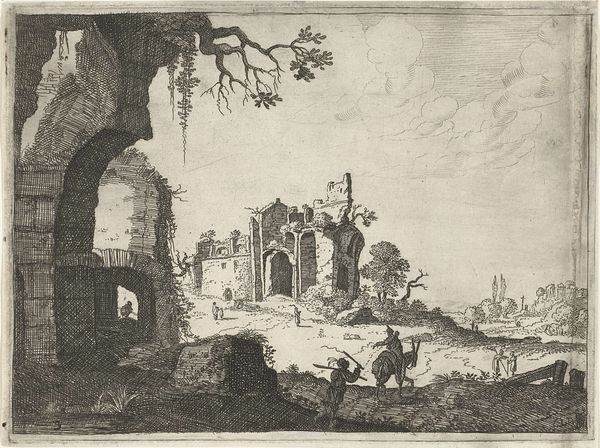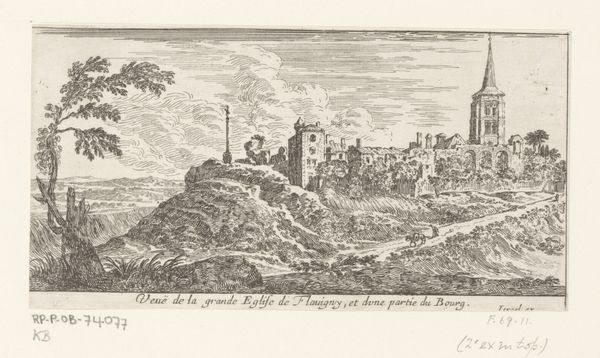
drawing, pencil
#
drawing
#
medieval
#
dutch-golden-age
#
pencil sketch
#
landscape
#
pencil
#
cityscape
#
pencil work
#
academic-art
Dimensions: height 190 mm, width 255 mm
Copyright: Rijks Museum: Open Domain
Jan de Beijer rendered these remains of Kranendonk Castle with pen and brush around the 1700s, capturing not just stone, but the very essence of time's relentless passage. The ruined castle, a dominant motif, speaks volumes. Once a symbol of power and authority, it now crumbles, mirroring the ephemerality of human endeavors. This visual language of ruins is not new; we see it echoed in ancient Roman depictions of fallen empires, a memento mori urging reflection on mortality. Note the goats grazing among the wreckage. These creatures, symbols of vitality and life, juxtaposed against the decay, create a tension. They recall similar contrasts in Renaissance art, where pastoral scenes often played against the backdrop of classical ruins. The crumbling stone and the enduring life force create a powerful emotional resonance. This image reminds us that while structures may fall, the pulse of life continues, forever reshaping our understanding of history and memory.
Comments
No comments
Be the first to comment and join the conversation on the ultimate creative platform.
